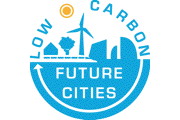
Creating a Pathway to Low Carbon Retail in China

The traditional focus of environmental efforts has been on production activities. An area that has historically been overlooked is the retail sector, which plays an important role in addressing carbon emissions. This is particularly the case in China, which is increasingly becoming a consumption-driven economy. In October of 2013 the CSCP organised a workshop on Low Carbon Retail and Consumption in Shanghai. The workshop brought together Chinese suppliers, retailers, consumers and academic researchers to explore innovative pathways toward low carbon retail in China.
Growing demand for a low carbon retail sector
China’s retail market is characterised by tough price competition within a fragmented market. To survive in this environment, retailers need to gain competitive advantage and diversify business models. Sustainable or green retail solutions offer an opportunity to add value, meet consumer demand, address new target groups and of course reduce carbon emissions.
A major driver that influences the retail sector in China is rapid change in consumer behaviour, lifestyles and consumption patterns. Future consumers will be much more conscious about the way they live and will increasingly demand transparency respecting product origins and environmental aspects. For retailers there is significant potential to drive efficiency in the production sector and within supply chains. The challenge is to have a coordinated approach that addresses aspects from production to final consumption. This was the thinking behind the Shanghai workshop and the forthcoming CSCP report on the event.
Dialogue along the value chain
Retailers are in a crucial position in the value chain as they communicate with both suppliers and consumers. This makes retailers able to stimulate change along the value chain. Focusing on the full value chain enables the different actors to take a holistic approach toward their activities and widen their influence by engaging in dialogue and through cooperative action.
The most important leverage points for low carbon retail
Consumption
Hyper transparency, Community projects, Family day
Retail
Packaging take-back, Retailer as contractor (leaser, lender service), Value added alliance (Product benefit)
Supply
Traceability codes, Bridge the theory-practice gap (train-the-trainers), Surveying consumer needs
In cooperation with the European Chamber of Commerce on Supply Chain, China Sustainable Retail Roundtable (WWF, CCFA) and JUCCCE /China Dream on consumption, the workshop explored best practice examples and engaged in multi-actor group exercises. A diverse mix of 40 retailers, suppliers, consumer groups, civil society associations, experts and academics discussed supply chain coordination, learned about future challenges connected to product and service innovation for low carbon development, sustainable lifestyles and future consumer habits. Both Chinese and international companies (including Unilever, Ikea, Wal-Mart, Metro, H&M, Motorola and Carrefour) participated in the interactive workshop.
Cooperative actions for low carbon retail
Working with the future trends identified through CSCP research and participant insights, the workshop discussed the main leverage points for each phase of the supply chain. There was significant interest expressed in cooperation and partnership activities to take concrete steps and assume new roles for low carbon retail activities, such as product transparency and labelling, stakeholder mapping and cooperation, and sustainable consumption education and a sustainable consumption week.
The way ahead
A final report on low carbon retail and consumption in China will be published in 2014. Participants expressed interest in a follow up event to further develop ideas and exchange more information on good practice.
Further information
| Neil Coles Senior SCP Expert +49 (202) 459 58 56 |



